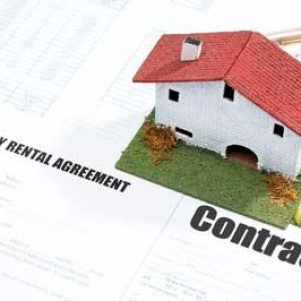The Spanish real estate market has recently been the centre of attention for investors, both privately and professionally. The number of real estate transactions in Spain has continued to grow over the last two years, with private housing and commercial leases being highly sought after, especially in Madrid and Barcelona.
It is impossible to discuss the purchase of real estate without mentioning juridical transactions. However, real estate sales contracts raise doubt and questions, which this article goes on to consider. In France, a lawyer is generally missing from a real estate transaction for the benefit of the notary, who has the legal obligation to execute both administrative and urban prior verifications. In Spain the process is a little different. No legal obligation binds a notary, however, it is highly recommended to consult with a lawyer to guard yourself from risks inherent in a sale.
Is the notarial deed necessary to formalize the real estate sales contract?
Article 1280 of the Spanish Civil Code states that deeds and contracts for the creation, transmission, modification or extinction of real estate must be established by an authentic act. Consequently, real estate sales contracts must be established by a notary act.
What are the required documents for the buyer to purchase a real estate property in Spain?
The buyer must proceed diligently. Before acquiring real estate, the buyer must execute a set of verifications related to the object of the transaction and analyse the following documents:
- Certificate of mortgage and charges affecting the real estate: the Spanish land registry delivers a certificate which indicates any guarantees which encumber the property
- Property owner certificate inscription: this document, from the Spanish land register, identifies the property owner at the moment the document is requested. Therefore, it is necessary to check that the one purporting to be the seller is the actual owner
- Certificate attesting that the property owner is up to date with the payment of the property taxes: if the seller had not paid the property tax, the buyer will be responsible
- Certificate attesting that the property owner is up to date in the payment of condominium fees: a condominium syndicate provides this document. As said previously, in case of the seller’s failure to pay, the buyer will be indebted for the charges
- Attestation that the property owner is up to date in the payment of water, electricity and gas fees: here too, the issue is to ensure that the property owner does not leave any debt behind to the buyer.
Are buyers compelled to sign a private document such as an earnest money contract or a sale agreement before acquiring real estate?
The law does not compel parties to sign a sales agreement or earnest money contract, but in practice the signing of such documents happens frequently because it materializes the intention to reach an agreement between parties. In reality, the Spanish Civil Code does not deal with the earnest money contract, but the earnest money itself, in Article 1454. If earnest money or a deposit were provided in a contract of sale and purchase, the contract may be rescinded by the purchaser by agreeing to forfeit the earnest money or deposit, or the seller by agreeing to return the earnest money or deposit in duplicate. In practice, the earnest money is equal to 10% of the amount of the transaction.
What is a mortgage and what is its legal framework?
A mortgage is a right on real estate granted to a creditor, but it does not entail the dispossession of the property from the property owner. Articles 1876 of the Spanish Civil Code and Article 104 of the Mortgage Law provide the mortgage legal framework in Spain. The debtor promises to reimburse the bank (creditor) the sum paid plus interest. In case of a delay in payment, the debtor must pay late-payment interest. If the totality of the amount is not paid within the period agreed to by the bank and the debtor, the bank can seize the property and auction it in order to recover the rest of the amount due.
The mortgage charging a property must be inscribed in the land registry, which makes it public. Therefore, when acquiring property, the buyer must verify the existence of any mortgage to avoid the property from being seized subsequently to its acquisition.
Who can sign the real estate sales contract?
Relating to the seller, the sales contract must be signed by all the owners of the property inscribed in the land registry. When the seller is a real estate developer, the individual signing is an administrator or a representative of the company.
Concerning the buyer, if a married person buys the property, than the signature of both spouses is required.
Parties might be represented. Foreign buyers willing to avoid displacement must sign a proxy authenticated by the notary in their country of origin. If the person signing is in their country of origin, the proxy must bear the apostil of The Hague Convention of 5th October 1961, otherwise it will have to be legalized.
If you need additional tips to purchase a real estate in Spain,





